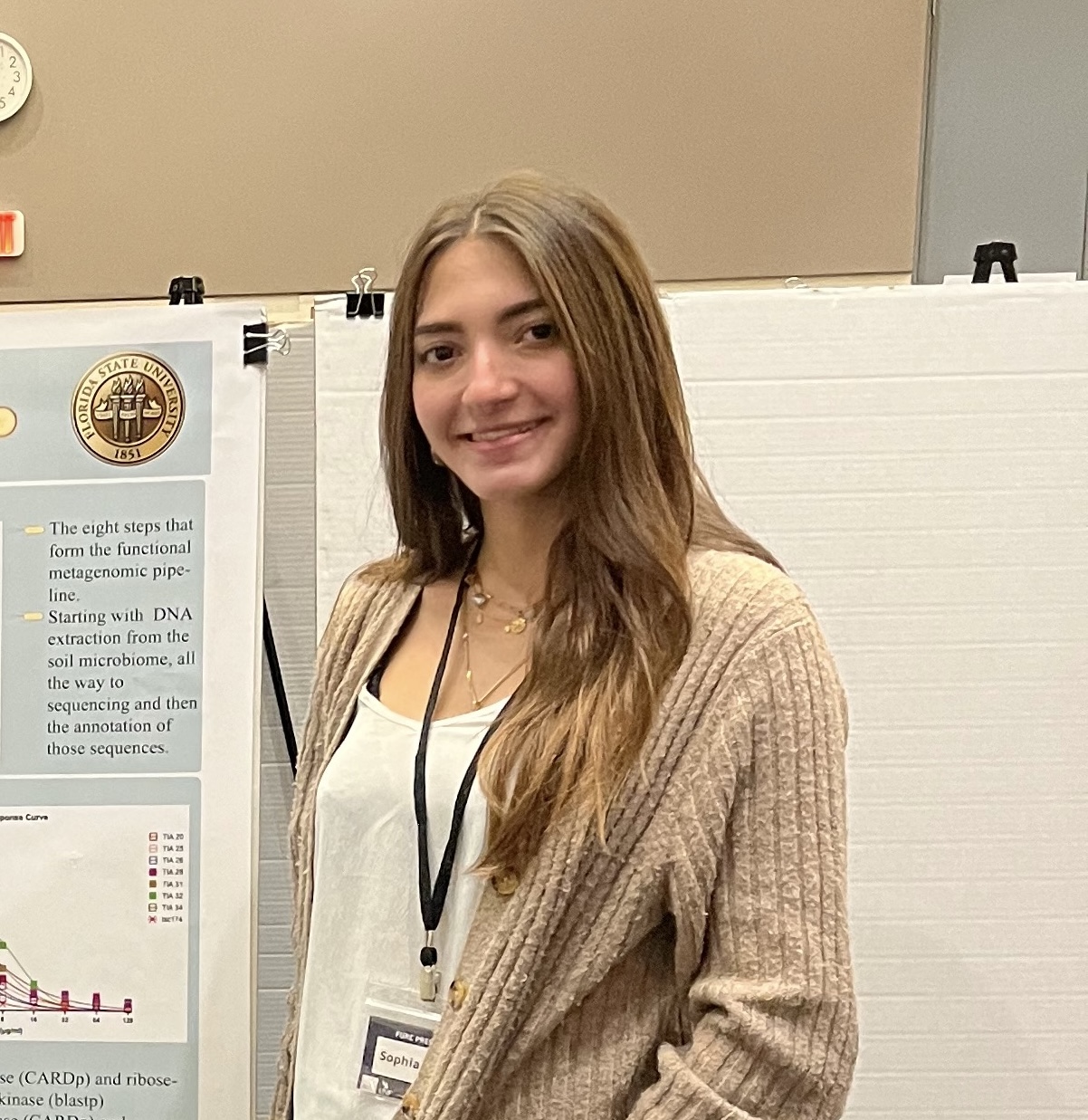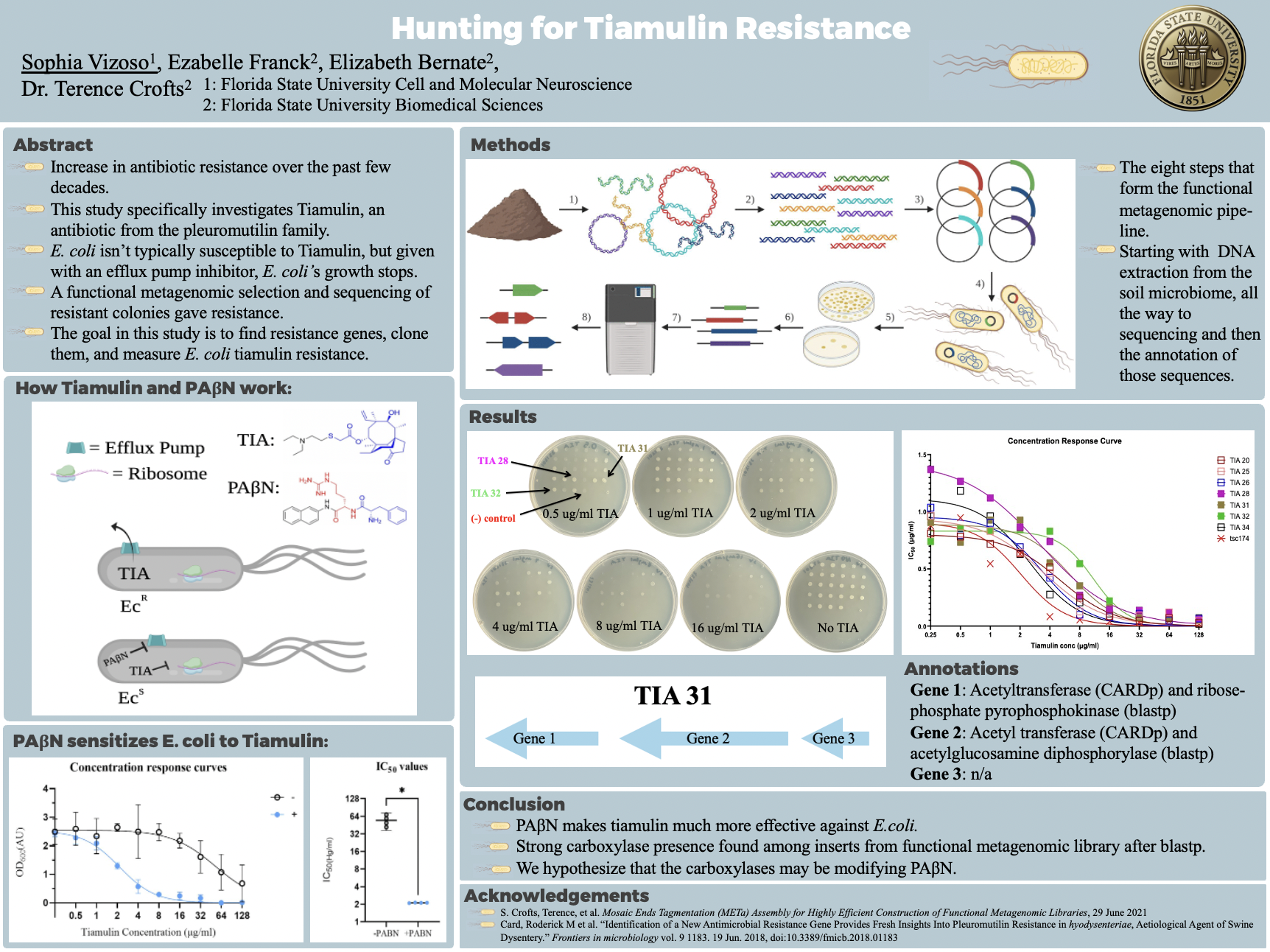Research Symposium
24th annual Undergraduate Research Symposium, April 3, 2024
Sophia Vizoso Poster Session 5: 4:00 pm - 5:00 pm/353

BIO
My name is Sophia Vizoso, and I am a second-year student at FSU majoring in Cell and Molecular Neuroscience with a minor in Chemistry. Currently on the pre-medical track, I aspire to pursue a career in medicine.
During my time at FSU, I have had the privilege of participating in research under the guidance of Dr. Terence Crofts at the FSU College of Medicine. Beginning as a UROP student and now continuing as a DIS student, this experience has been instrumental in shaping my understanding of scientific inquiry. My research focus within the Crofts lab has centered on the mechanisms of antibiotic resistance. Bacteria, despite their microscopic size, are very powerful and adaptable organisms. Witnessing their ability to thrive and resist various challenges has cultivated in me a deeper appreciation for the intricacies of scientific processes and the importance of rigorous investigation in addressing such a significant concern.
I am committed to furthering my academic and professional development in the field of healthcare, and I am eager to continue contributing to meaningful research endeavors. I look forward to the opportunity to further discuss my experiences and research at the URS.
Hunting for Tiamulin Resistance
Authors: Sophia Vizoso, Dr. Terence CroftsStudent Major: Cell and molecular Neuroscience
Mentor: Dr. Terence Crofts
Mentor's Department: Department of Biomedical Sciences Mentor's College: Florida State University College of Medicine Co-Presenters:
Abstract
Over the past few decades, there has been an increase in antibiotic resistance. This study specifically investigates Tiamulin, an antibiotic from the pleuromutilin family. Another antibiotic from the same family, lefamulin, treats MRSA, a highly contagious staph infection that is resistant to antibiotics. In this study, Tiamulin is being used as an alternative to study lefamulin. E. coli isn’t typically susceptible to Tiamulin, but given with an efflux pump inhibitor, E. coli’s growth stops. After a functional metagenomic selection and sequencing of resistant colonies, E. coli gave resistance, and colonies formed. This study aims to find resistance genes, clone them, and measure E. coli tiamulin resistance. In addition, after performing resistance testing, and analyzing the inserts that gave resistance, annotations were made on those inserts.
Keywords: Antibiotic resistance, bacteria, science, chemistry, biology

